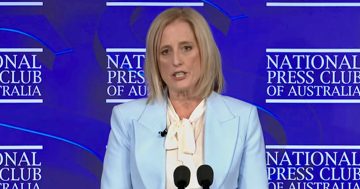Helen Baker* says there’s generally no fair go for the fairer sex when it comes to money and outlines the six most prominent money challenges that are (mostly) unique to women, and some tips to getting ahead.
 The gender pay gap/retirement gap
The gender pay gap/retirement gap
Aussie women today still earn 13.9 per cent (or $242.90 a week full-time) less than men on average.
It creates two levels of inequality – lower pay packets now, in turn meaning less money going into superannuation for retirement.
There are many causes, but no easy solutions.
I think more women need to find the confidence to ask to be paid what they’re worth – think Lisa Wilkinson ditching the Today show when she learned Karl Stefanovic earned more for the same job!
Also, get advice, and do so early.
Many women don’t seek financial advice, often because they fear the male-dominated finance world. So they miss out on super, tax and investment benefits.
Additionally, COVID-19 has demonstrated that people can work remotely.
It presents an opportunity for more women – and men – to negotiate flexible working arrangements to balance work and family commitments.
Divorce
Often during a separation, women accept an unfavourable settlement to put an end to the emotional trauma.
And they often take advice from family and friends, who should be a source of emotional support, not money expertise.
Another classic mistake women make is taking the family home they can’t afford by themselves, or at the expense of any superannuation or other joint assets.
But women can help safeguard themselves even before a relationship falls: be more active in joint financial decisions.
Understand what you have before things turn sour.
Single parenting
Single mums outnumber single dads around four to one.
If I were prime minister, I would make childcare free, because being able to fund childcare shouldn’t be a motivation or restriction on working.
I always advise single mums to firstly change their mindset: be kind to yourself.
They often try to maintain their kids’ lifestyle, but one income simply can’t provide the same as two.
Plus, it’s valuable to show your kids that money doesn’t grow on trees.
Also, devise a cash flow plan to make ends meet.
If their father earns more than you, he should be contributing more towards private school fees etc.
Caring for family
Daughters and daughters-in-law commonly assume responsibility over caring for elderly parents.
This often means sacrificing full-time work to juggle the needs of their kids and parents.
A granny flat is one great option to explore – you can keep parents close, but still with their own independence, and remove commuting time and costs.
Plus, you benefit from a higher property value and no ongoing retirement living costs.
Just be sure to reach agreement on who owns what, if your parents pay for the granny flat to be built.
Housing affordability
Sadly, women in their 60s are becoming the new face of homelessness.
They tend to be single (either from relationship breakdown or their partner’s death) or victims of domestic violence.
Yet many are still working: it’s not that they have no income, they simply can’t afford to meet the high cost of housing on their own.
Housing affordability is a policy issue for government.
Also, prevention is better than cure: buying property earlier in life can mean you have a debt-free home later on.
But for women in this situation, look at your super – can you access it to for accommodation? It doesn’t need to be huge, just secure and comfortable.
Living longer
We all know women statistically live longer than men.
That means that women generally need to fund more retirement years than men.
Some women find greater autonomy as widows, able to travel and do things that their partner never would.
But this, too, comes with a price tag.
You can help your situation pre-retirement, such as by using catch-up rules to boost your super balance while you’re still earning.
But don’t count on simply inheriting from your partner once they pass on – often, the money is gone from poor decisions or hefty medical bills.
*Helen Baker is a licensed Australian financial adviser and author.
This article first appeared at nestegg.com.au











